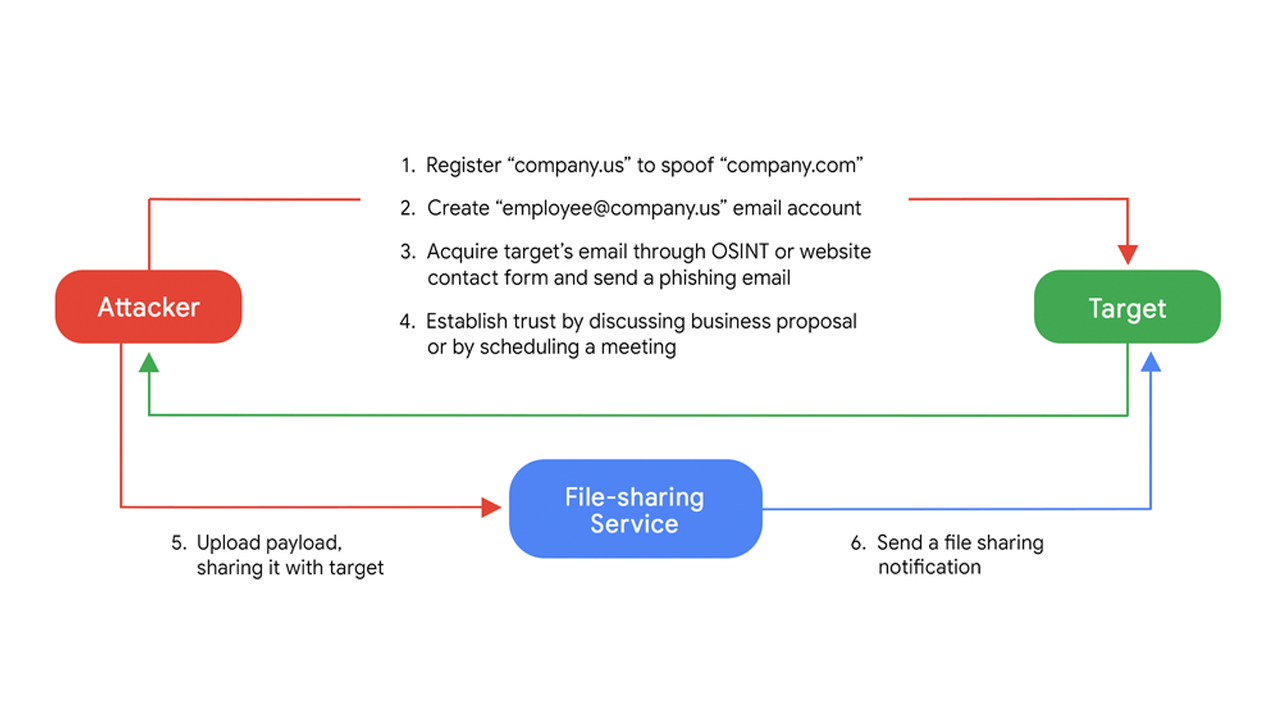Google exposes 'uniquely personal' access broker behind worst Conti, FIN12 ransomware attacks
Investigation unveils the inner workings of one access broker that helped two of the most-hated ransomware gangs in history


Google’s cyber security research division has unearthed details of initial access brokers (IABs) working on behalf of some of the biggest ransomware gangs in existence.
IABs are groups of cyber criminals that exploit vulnerabilities in organisations and sell that access to the highest bidder so they can launch meaningful cyber attacks without conducting the initial leg work.
The Threat Analysis Group (TAG) observed the EXOTIC LILY IAB operating from at least as far back as September 2021 and has provided access to companies for the likes of Conti and FIN12 so they can launch profitable ransomware attacks.
These types of IAB groups have been operating for some time but have gained popularity in recent years and are approaching the peak of their operational maturity, according to recent reports.
FIN12 and the now-shuttered Conti are among the most infamous ransomware operators of recent times. They have both indiscriminately targeted organisations for financial gain and, unlike other groups, display few ethical boundaries, both having targeted hospitals and healthcare organisations in the past.
The well-resourced EXOTIC LILY group, at the peak of its activity, is said to have targeted upwards of 5,000 emails a day across 650 global organisations, attempting to exploit a Microsoft zero-day vulnerability (CVE-2021-40444) to achieve initial access.
Uniquely personal approach
Google’s TAG said EXOTIC LILY displayed targeted attack techniques such as spoofing companies and employees as a means to gaining trust through email campaigns but “rather uniquely” devoted a considerable amount of time to each target in an attempt to build trust.
Get the ITPro daily newsletter
Sign up today and you will receive a free copy of our Future Focus 2025 report - the leading guidance on AI, cybersecurity and other IT challenges as per 700+ senior executives
Like the large-scale ransomware gangs it works for, EXOTIC LILY is comprised of many individuals so they can devote time to each target. TAG said the “level of human-interaction is rather unusual for cyber crime groups focused on mass-scale operations”.
TAG said EXOTIC LILY would customise business proposal templates when first contacting organisations rather than relying on just one, a technique requiring more effort than typically observed with such groups.
The IAB also handled additional communications with the victims in order to build trust sending a link to a malicious payload using legitimate file-sharing services.
The likes of WeTransfer, TransferNow, and OneDrive were used to deliver the payload that exploited the Microsoft zero-day, which was another technique the attackers used to evade detection mechanisms, TAG said.
EXOTIC LILY’s attack chain remained consistent throughout TAG’s analysis and can be broken down into just a few steps:
- Register [legitimate company name].us to imitate [legitimate company name].com
- Create “employee@[legitimate company name].us” email address
- Use OSINT or a website contact form to acquire target’s email address, send a phishing email
- Establish trust with further discussion or by scheduling a meeting
- Share payload with target
- Send a file-sharing notification

The group first used fake online profiles with AI-generated faces to impersonate employees at a spoofed company, but later resorted to stealing genuine employees’ data and harvesting more from databases like CrunchBase and RocketReach.
RELATED RESOURCE

How a platform approach to security monitoring initiatives adds value
Integration, orchestration, analytics, automation, and the need for speed
The use of a legitimate file-sharing service became a powerful method of avoiding detection, as not only are they familiar companies, but the target also receives a genuine file-sharing notification from that provider to increase the perceived authenticity.
EXOTIC LILY first used documents containing an exploit for a Microsoft zero-day but later changed strategy to delivering ISO files with hidden BazarLoader DLLs – a fileless attack method also common with ransomware groups.
Microsoft shortcut files, known as LNK shortcuts, were also delivered in these ISO files, with samples indicating they were custom-made by EXOTIC LILY rather than off-the-shelf exploit kits, TAG said.

Connor Jones has been at the forefront of global cyber security news coverage for the past few years, breaking developments on major stories such as LockBit’s ransomware attack on Royal Mail International, and many others. He has also made sporadic appearances on the ITPro Podcast discussing topics from home desk setups all the way to hacking systems using prosthetic limbs. He has a master’s degree in Magazine Journalism from the University of Sheffield, and has previously written for the likes of Red Bull Esports and UNILAD tech during his career that started in 2015.
-
 Google faces 'first of its kind' class action for search ads overcharging in UK
Google faces 'first of its kind' class action for search ads overcharging in UKNews Google faces a "first of its kind" £5 billion lawsuit in the UK over accusations it has a monopoly in digital advertising that allows it to overcharge customers.
By Nicole Kobie
-
 Neural interfaces promise to make all tech accessible – it’s not that simple
Neural interfaces promise to make all tech accessible – it’s not that simpleColumn Better consideration of ethics and practical implementation are needed if disabled people are to benefit from neural interfaces
By John Loeppky
-
 Cleo attack victim list grows as Hertz confirms customer data stolen – and security experts say it won't be the last
Cleo attack victim list grows as Hertz confirms customer data stolen – and security experts say it won't be the lastNews Hertz has confirmed it suffered a data breach as a result of the Cleo zero-day vulnerability in late 2024, with the car rental giant warning that customer data was stolen.
By Ross Kelly
-
 ‘Phishing kits are a force multiplier': Cheap cyber crime kits can be bought on the dark web for less than $25 – and experts warn it’s lowering the barrier of entry for amateur hackers
‘Phishing kits are a force multiplier': Cheap cyber crime kits can be bought on the dark web for less than $25 – and experts warn it’s lowering the barrier of entry for amateur hackersNews Research from NordVPN shows phishing kits are now widely available on the dark web and via messaging apps like Telegram, and are often selling for less than $25.
By Emma Woollacott
-
 Healthcare systems are rife with exploits — and ransomware gangs have noticed
Healthcare systems are rife with exploits — and ransomware gangs have noticedNews Nearly nine-in-ten healthcare organizations have medical devices that are vulnerable to exploits, and ransomware groups are taking notice.
By Nicole Kobie
-
 Alleged LockBit developer extradited to the US
Alleged LockBit developer extradited to the USNews A Russian-Israeli man has been extradited to the US amid accusations of being a key LockBit ransomware developer.
By Emma Woollacott
-
 February was the worst month on record for ransomware attacks – and one threat group had a field day
February was the worst month on record for ransomware attacks – and one threat group had a field dayNews February 2025 was the worst month on record for the number of ransomware attacks, according to new research from Bitdefender.
By Emma Woollacott
-
 CISA issues warning over Medusa ransomware after 300 victims from critical sectors impacted
CISA issues warning over Medusa ransomware after 300 victims from critical sectors impactedNews The Medusa ransomware as a Service operation compromised twice as many organizations at the start of 2025 compared to 2024
By Solomon Klappholz
-
 Warning issued over prolific 'Ghost' ransomware group
Warning issued over prolific 'Ghost' ransomware groupNews The Ghost ransomware group is known to act fast and exploit vulnerabilities in public-facing appliances
By Solomon Klappholz
-
 The Zservers takedown is another big win for law enforcement
The Zservers takedown is another big win for law enforcementNews LockBit has been dealt another blow by law enforcement after Dutch police took 127 of its servers offline
By Solomon Klappholz